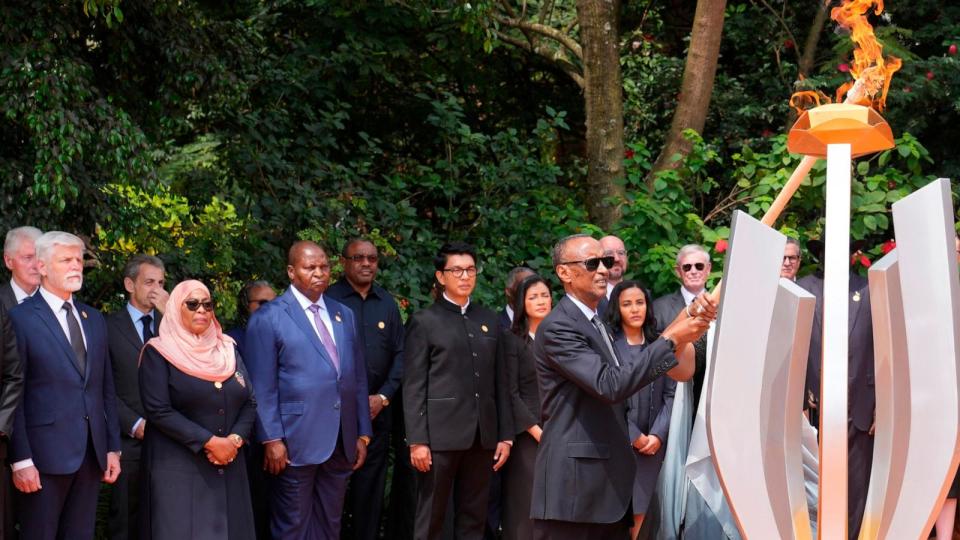Rwanda genocide tribunal comes to end after almost 3 decades
The UN’s International Criminal Tribunal for Rwanda (ICTR) has officially concluded after 29 years, the Office of the Prosecutor has announced.
It comes as the last two fugitives indicted by the tribunal -- Ryandikayo and Charles Sikubwabo -- were successfully accounted for, ultimately confirmed as deceased.
Ryandikayo and Sikubwabo were charged with several crimes including counts of genocide and the two were accused of leading mobs of the Interhamwe Hutu militia.
“My Office and I are pleased that today, this work has been brought to a successful end,” said International Residual Mechanism for Criminal tribunals (IRMCT) Chief Prosecutor, Serge Brammertz.
The IRMCT told ABC News that a total of 92 persons were indicted by the UN tribunal for crimes committed during the Rwandan genocide against the Tutsis.
Reflecting on the work of the last 29 years, Brammertz said the ICTR team faced ‘immense difficulties and "significant" challenges tracking and locating fugitives, ranging from "sophisticated efforts by fugitives to conceal their identities and locations" and "political unwillingness of countries to execute arrests."
“Many began to doubt that notorious fugitives, like Felicien Kabuga or Ratko Mladić, would ever be arrested,” said Brammertz.
The U.S. State Department had issued a reward of up to $5 million for information leading to the arrest of Felicien Kabuga, the businessmen alleged to be the main financier and backer of political and militia groups that committed the Rwandan genocide.

However, after 25 years on the run, he was arrested by French authorities at his home on the outskirts of Paris in May 2020.
The U.N.’s International Criminal Tribunal for Rwanda was the first international court established to prosecute high-ranking individuals for massive human rights violations in Africa, including those responsible for the 1994 Rwanda Genocide against the Tutsis -- one of the world’s worst genocides since World War II.
The Rwandan genocide, which began in April 1994, saw Rwanda’s extremist-led Hutu government launch a systemic campaign on the Tutsi minority group as divisions between the two ethnic groups came to a head. The violence began after a plane carrying Rwanda’s Hutu President, Juvenal Habyarimana, was shot down by unknown assailants.
By the time the genocide concluded about 100 days later in July 1994, the massacre had claimed the lives of over 800,000 civilians with thousands more left injured or maimed.
“Our journey has been long and tough,” said Rwandan President Paul Kagame in his address at the 30th commemoration of the 1994 genocide in April -- also known as Kwibuka 30 -- which means "To remember" in Kinyarwanda.
“Rwanda’s tragedy is a warning. The process of division and extremism which leads to genocide can happen anywhere, if left unchecked,” Kagame said. "Our hearts are filled with grief and gratitude in equal measure. We remember our dead, and are also grateful for what Rwanda has become.”
In total, there are still more than 1,000 genocide suspects sought by authorities who still remain at large, said Brammertz.
Rwanda’s Prosecutor General national partners are set to continue efforts to bring individuals to justice, vowing to not stop until all perpetrators of crimes are brought to justice.
Rwanda genocide tribunal comes to end after almost 3 decades originally appeared on abcnews.go.com

